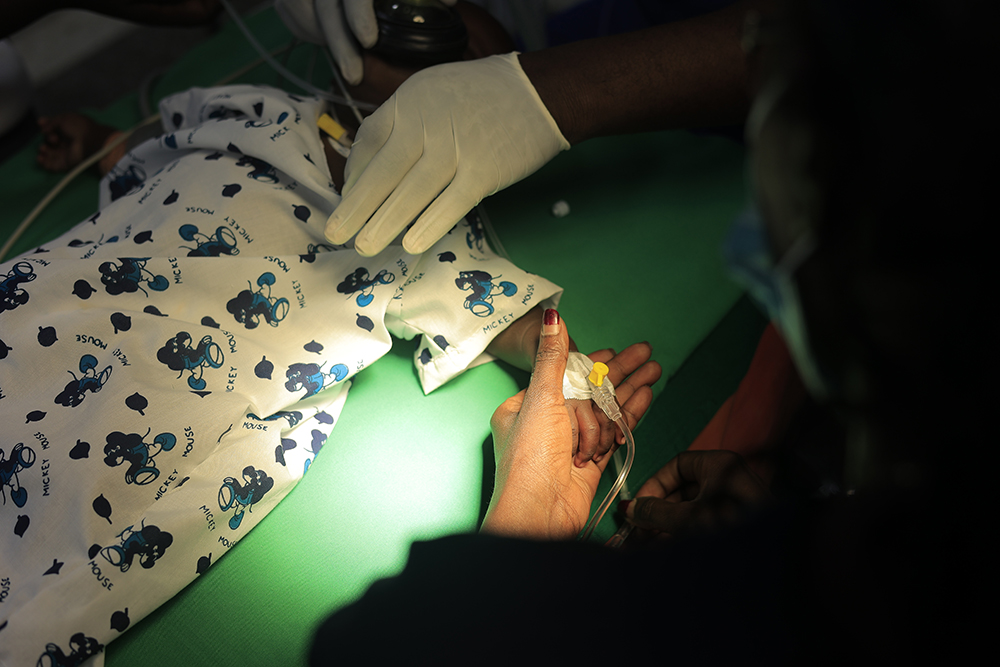New global funding targets safer surgery for women in low-resource countries
For women, surgery can be especially dangerous during childbirth. Caesarean delivery (C-section), now the most common operation worldwide, still carries significant risks, with infections being the second leading cause of maternal death after heavy bleeding.
(Courtesy)
____________
A new round of funding aims to tackle the persistent global problem of unsafe surgery by improving surgical and anaesthesia care so that patients are put to sleep safely, monitored throughout operations, and better protected in Sub-Saharan Africa, Latin America, and the Asia-Pacific region.
Every year, an estimated four million people die following surgery. In many low- and middle-income countries, even basic operations are risky because hospitals often lack proper infection control, essential equipment, and enough trained staff.
For women, surgery can be especially dangerous during childbirth. Caesarean delivery (C-section), now the most common operation worldwide, still carries significant risks, with infections being the second leading cause of maternal death after heavy bleeding.
Lifebox, a nonprofit organisation dedicated to safer surgery and anaesthesia, has been selected as one of more than 80 recipients of the Action for Women’s Health award, which is part of a $250 million initiative launched in 2024 by Pivotal and managed by Lever for Change to advance women’s health globally.
(Courtesy photo)
Lifebox’s work centres on improving the safety of surgery and anaesthesia in low-resource settings, where unsafe operations remain a major cause of preventable death and disability.
Work and focus in Uganda
Uganda shows how these investments translate into safer care on the ground. Lifebox has long partnered with local hospitals to train surgical teams and provide essential monitoring equipment.
This includes the recent distribution of 54 portable, battery-powered, and durable capnographs, which were developed with Smile Train and distributed to 35 hospitals nationwide. These devices monitor a patient’s breathing in real time, a critical safeguard during surgery.
Clinicians describe the impact as significant. At CoRSU Rehabilitation Hospital, Medical Director, Dr Moses Fisha Muhumuza, says the Lifebox–Smile Train capnographs “kept us running and allowed us to monitor patients safely.”
Designed for resource-limited settings, the devices work even in rural theatres with unreliable electricity. “It’s simple and flexible and has transformed how we work.”
Anaesthesiologist Dr Julianna Nanimambi adds that the devices “tells in real time whether oxygen is reaching the tissues, that carbon dioxide is returning, and that the heart and lungs are working together. Without it, you’re operating blind.”
This kind of improvement is basic, lifesaving, and sustainable, and it is exactly what the new funding aims to scale.
Lifebox also runs programmes to prevent infections during surgery. Their Clean Cut for Caesarean Section initiative focuses on six key infection-prevention practices, from keeping instruments sterile, maintaining a clean surgical environment, using antibiotics at the right time, and counting gauzes and sponges to prevent mistakes.
Studies show that hospitals using this programme can reduce surgery-related complications and deaths, including after C-sections, by up to 40%.
Dr Tihitena Negussie Mammo, Lifebox’s Global Clinical Director and a paediatric surgeon, notes that the organisation’s focus is on practical, evidence-based interventions that strengthen existing surgical systems.
“Unsafe surgery is one of the most urgent and solvable challenges in global health, especially for women,” she says. “Strengthening surgical safety for women saves lives today and builds the foundation for healthier families and societies.”
Global recognition and support
The funding announcement came shortly after World Anaesthesia Day on October 16, 2025, which highlighted the lifesaving role of anaesthesiologists in emergencies, disasters, and critical care.
These are the professionals who help patients sleep safely during surgery and keep their vital signs stable.
In Uganda, the Association of Anaesthesiologists of Uganda (AAU) marked the day during its annual conference in Kampala, joined by the Intensive Care Society of Uganda (ICSU) and keynote speaker Dr Stephen Okelo, a cardiac anaesthesiologist and critical care physician from Kenya. The association celebrated the anaesthesiologists who save lives behind the scenes in emergencies.
Linking investment to system change
Lifebox was chosen for the Action for Women’s Health award from more than 4,000 organisations in 119 countries. The funding will help expand infection-prevention programmes, enhance training for surgical teams, and provide safer anaesthesia equipment.
Kris Torgeson, Lifebox Global CEO, said the funding will allow Lifebox to reach more hospitals and give surgical teams the tools they need to prevent infections and improve safety for women.
Professor Salome Maswime, an obstetrician-gynaecologist and Vice Chair of the Lifebox Global Governance Council, emphasised the broader impact of improving surgical safety: “No woman should die while giving life. By strengthening surgical systems, we are transforming maternal health from just survival to high-quality care, improving safety and dignity for every woman.”